
England has no shortage of towns that wear their past well. Bath glows in golden symmetry, with its classical crescents and mineral springs. The Cotswolds appear almost self-conscious in their prettiness—villages like Stow-on-the-Wold and Bibury composed in steep gables and quarried stone, their streambeds plaited with willow roots and watercress.
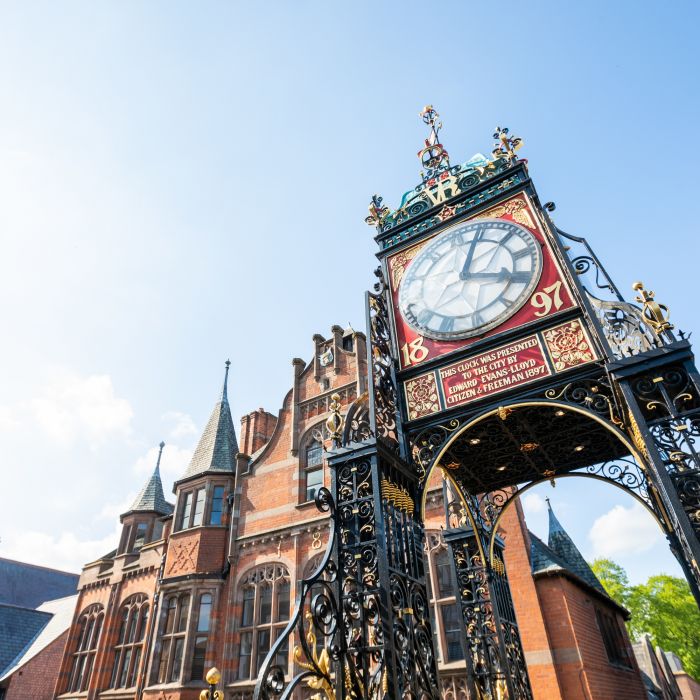
Further north, just beneath the Welsh border, Chester offers something more grounded. It’s a city shaped by continuity rather than reinvention, where Roman walls, medieval rows, and Georgian façades exist not as spectacle, but as part of daily life. And quietly anchoring a stay here—with charm, design intelligence, and a sense of place—is the Hotel Indigo Chester.
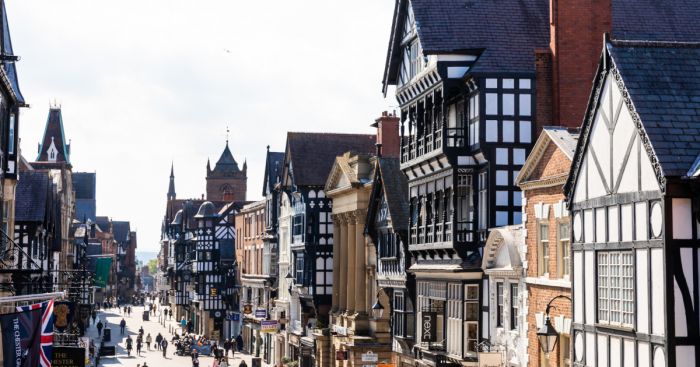
The city itself feels layered in a way that doesn’t call for embellishment. Tudor revival frontages—black timber beams sharply stitched against whitewash—stand shoulder to shoulder with Georgian brick, Victorian flourishes, and Roman foundations. The Eastgate Clock, long mistaken for antique, was in fact added in 1897 to mark Queen Victoria’s diamond jubilee. It rests atop a Roman arch, underscoring the point: every age here builds atop the last.
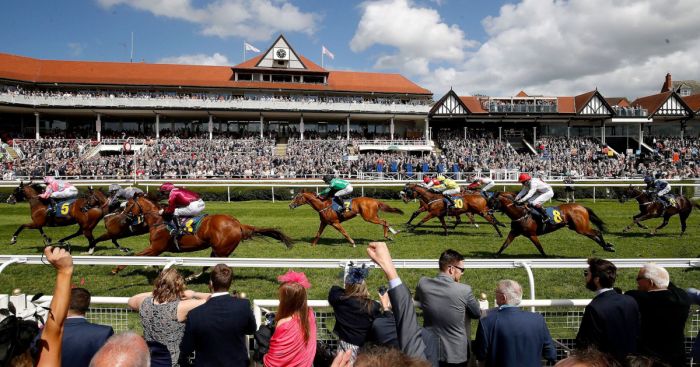
To the west lies the Roodee, Britain’s oldest racecourse, set on what was once the city’s Roman harbour. When the River Dee silted over, the land found new purpose: first for ships, then for horses. Since 1539, it has drawn crowds for the sport of kings beneath Tudor gables and Georgian balconies. That equestrian lineage quietly threads through the interiors of the Hotel Indigo Chester.
THE HOTEL INDIGO CHESTER
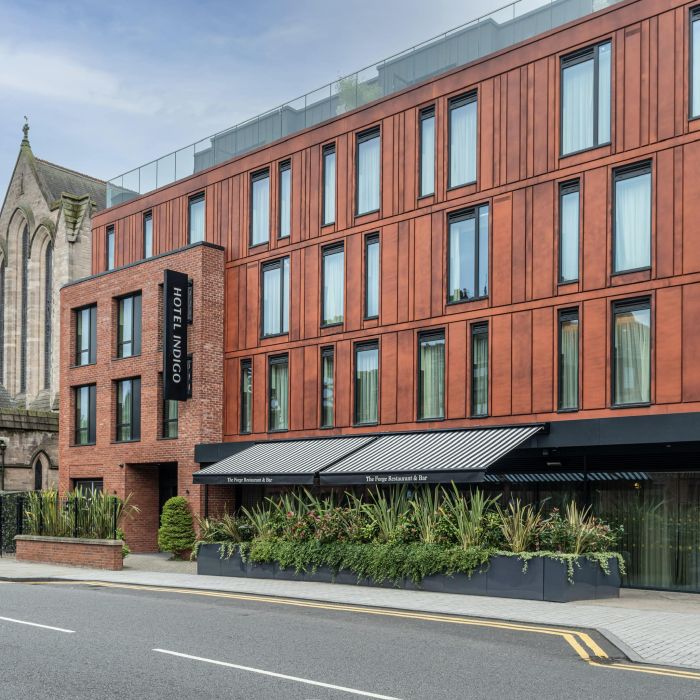
Positioned just off Grosvenor Park Road, a five-minute walk from the centre, Hotel Indigo Chester feels considered and deliberate—contemporary, but grounded in its surroundings. It’s boutique in scale, with just 75 rooms, but rich in character. From the outset, there’s a sense of precision in the visual choices: heritage colour palettes, tactile fabrics, a mood that’s both cultivated and unforced.
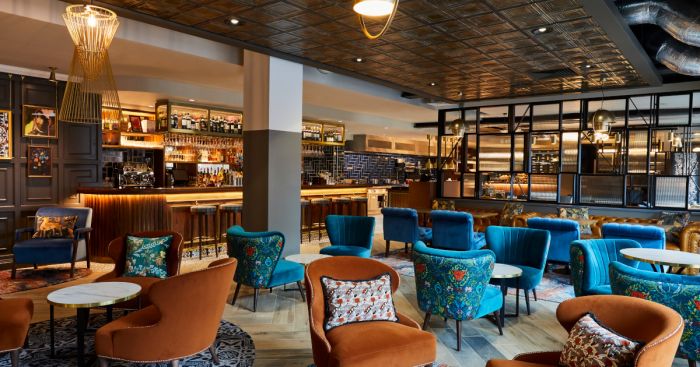
The lobby is dressed in deep indigo, forest green, and tarnished brass. Velvet armchairs are arranged in deliberate symmetry beside rich honey colored leather sofas and botanical-print cushions. The artwork is sharply curated—framed racing portraits, deconstructed jockey silks, abstract renderings of the Roodee’s topography. It doesn’t lean on theme; it builds one. At the bar, fluted glass and dark timber echo the measured glamour of a country house drawing room, while cocktail menus feature a mix of classics and quietly confident house creations. There’s clarity here—no clutter, no gimmick.
ACCOMMODATIONS AT THE HOTEL INDIGO CHESTER
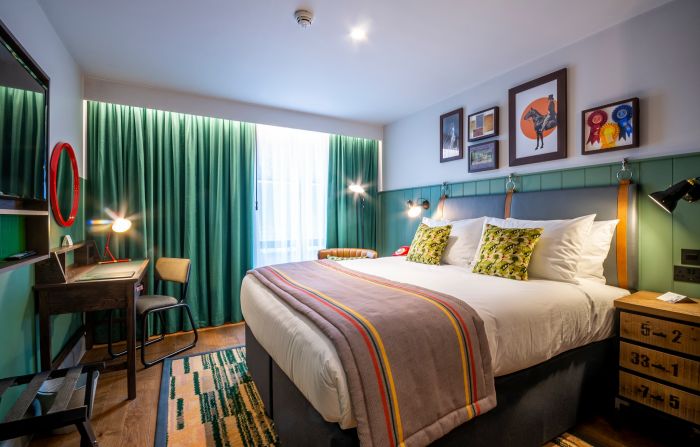
The design narrative continues upstairs. Rooms are divided into three themes—Eastgate Clock, Architecture, and Racecourse—each executed with a light touch. In the Racecourse rooms, saddle-stitched headboards in warm leather offset slate-toned throws and crisp white linen. Horse sketches in charcoal line the walls, flanked by brass lamps shaped like stirrups. The desk chair is more tailored than ergonomic; the chaise by the window is upholstered in a racing green boucle that softens in the morning light.
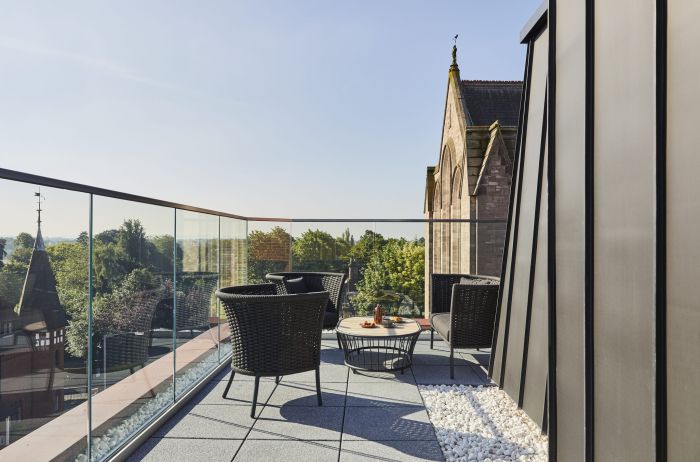
Bathrooms are finished in glossy black metro tile with polished brass fittings and generous rainfall showers. Zenology products, heated towel rails, and simple lines give the space a functional elegance. Several rooms offer balconies with views over Chester’s red-sandstone spires and town rooftops, the horizon pierced by the cathedral’s tower. The noise of the city is faint here—just enough to remind you of where you are.
DINNER AT THE FORGE
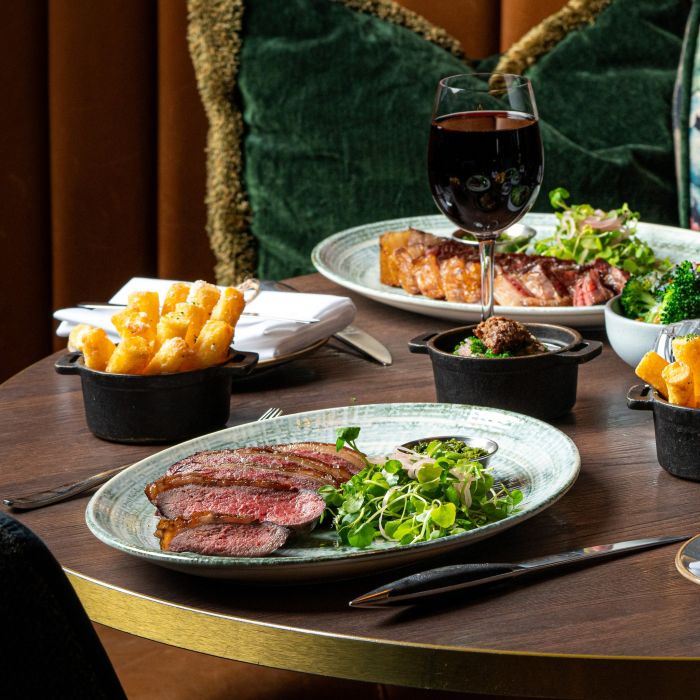
The Forge, Indigo’s ground-floor restaurant, is both a visual and sensory extension of the hotel. The room is defined by clean lines and subtle drama: open kitchen, glass-fronted dry-age fridge, and lighting designed for slow evenings. Banquettes in saddle-brown leather ground the space with warmth, while charcoal-panelled walls and contemporary equestrian art add a restrained sense of drama.
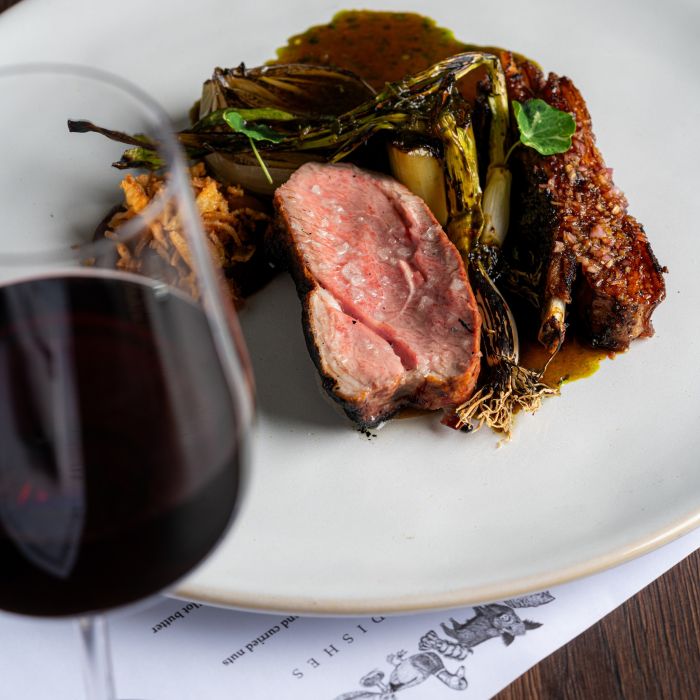
The dry-ageing process is not a gesture here—it’s central. Cuts of British beef, venison, and lamb hang behind glass, exposed to time and cold air. The meat is grilled over charcoal, with the kitchen fully visible behind the pass. It’s an understated theatre: smoke curling into the rafters, chefs moving with the quiet rhythm of those who know their ingredients well. Starters lean toward earthy flavours—wild mushrooms, treacle bread, smoked bone marrow. The mains are focused: a Hereford sirloin cooked precisely, or Welsh lamb with celeriac and anchovy jus. The wine list favours Europe, with a few considered outliers.
EXPLORING CHESTER
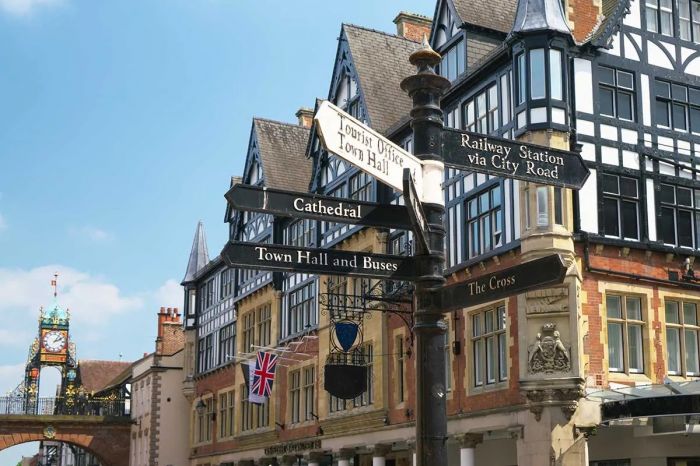
Beyond the urban retreat, Chester reveals itself best on foot. Begin at the city walls—the only complete circuit in Britain—and follow their sandstone loop for two miles. The amphitheatre appears in relief on the southeastern edge, a cracked footprint of what once held 8,000 spectators. Later, the path passes beneath the cathedral tower, past the racecourse grandstand, and finally beside the river where boats wait to carry guests upriver under low bridges and willow trees.
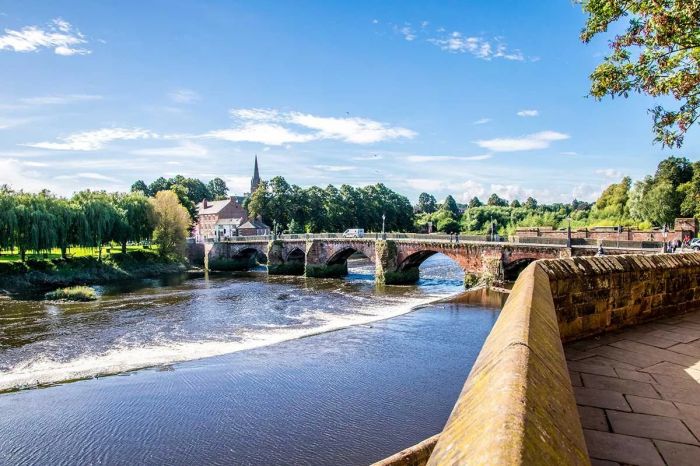
Grosvenor Park, just across from the hotel, offers a contrast of symmetry and seasonal softness: topiary spirals, Edwardian glasshouses, iron benches set beneath laburnum trees. In spring, it is embroidered with daffodils; in summer, it becomes a theatre for open-air Shakespeare. The bandstand still hosts brass on Sundays. The boats below offer slow passage down the Dee, their quiet wake parting reflections of Georgian townhouses and long-established boathouses.

Chester carries its history with quiet conviction. Its textures—Roman stone, Tudor timber, Victorian brick—form a city that rewards attention rather than demands it. Hotel Indigo Chester mirrors that character with interiors shaped by context rather than trend. It’s a place where design is thoughtful, service unforced, and the setting richly layered. The experience is less about performance and more about presence—the kind that lingers not through spectacle, but through precision and restraint.









